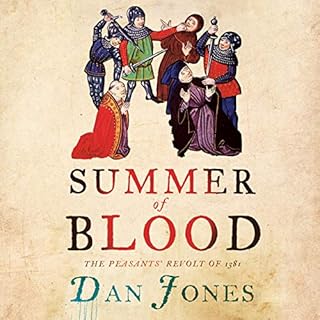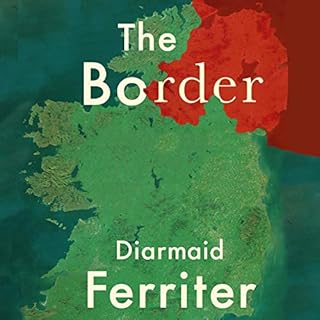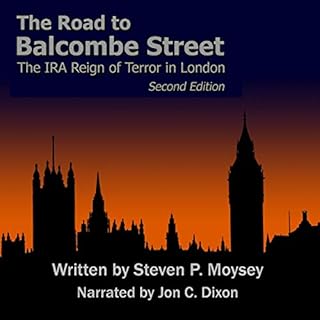billyliar
- 8
- reviews
- 10
- helpful votes
- 9
- ratings
-
England, Arise
- The People, the King, and the Great Revolt of 1381
- By: Juliet Barker
- Narrated by: Carole Boyd
- Length: 14 hrs and 59 mins
- Unabridged
-
Overall4 out of 5 stars 40
-
Performance4 out of 5 stars 37
-
Story4 out of 5 stars 37
The dramatic and shocking events of the Peasants' Revolt of 1381 are to be the backdrop to Juliet Barker's latest book: a snapshot of what everyday life was like for ordinary people living in the middle ages. The same highly successful techniques she deployed in Agincourt and Conquest will this time be brought to bear on civilian society.
-
5 out of 5 stars
-
Much more than a history of the Peasant's Revolt
- By Jim on 06-12-14
- England, Arise
- The People, the King, and the Great Revolt of 1381
- By: Juliet Barker
- Narrated by: Carole Boyd
Excruciating in its tediousness!
Reviewed: 09-09-24
The author takes a fascinating period in English history and manages to bury the narrative in a wealth of minutiae and irrelevant facts. I had to stop 5 and a half chapters in as by this point the author hadn't even begun to discuss the Revolt itself. However, she had listed the range of vegetables that 14th century townsfolk might grow in their garden, discussed the thickness and composition of city walls and dealt at length with the range of fabrics that might be hung in the houses of the rich. For your own sanity, avoid this excruciatingly dull book!! Awful.
Something went wrong. Please try again in a few minutes.
You voted on this review!
You reported this review!
-
Summer of Blood
- The Peasants’ Revolt of 1381
- By: Dan Jones
- Narrated by: Kris Dyer
- Length: 7 hrs and 51 mins
- Unabridged
-
Overall4.5 out of 5 stars 153
-
Performance4.5 out of 5 stars 137
-
Story4.5 out of 5 stars 137
The Peasants’ Revolt of 1381 is one of the most dramatic and bloody events in English history. Starting with village riots in the Essex countryside, chaos rapidly spread across much of the southeast of England, as tens of thousands of ordinary men and women marched in fury to London, torching houses, slaughtering their social superiors and terrifying the life out of those who got in their way. The burning down of Savoy Palace, home to the most powerful magnate in the realm, marked one of the Revolt’s most violent episodes.
-
2 out of 5 stars
-
Narrator was aight, Book half-aight
- By Bean on 04-11-20
- Summer of Blood
- The Peasants’ Revolt of 1381
- By: Dan Jones
- Narrated by: Kris Dyer
Pro-Royal, anti-rebel bias undermines the work.
Reviewed: 23-07-21
I enjoyed this book for sure. Unlike some reviewers I have no problem with the author indulging in moments of speculation, to keep the narrative flowing, where these imaginings simply add colour and drama. This is to be expected in what is a novelistic and popular telling of the story. This is not, nor is it meant to be, a scholarly work. Rather, a romping good tale. It largely succeeds on these terms.
What is irritating, is when creative license simply serves Jones' political prejudices. In discussing the uprising too often he attributes benign motives to King Richard and established authority - while assuming the very worst of the rebels. They are described as 'blood thirsty', 'demagogic' and 'arrogant' in the latter stages of the book when all objectivity is abandoned. We are also led to see John Ball as a power-hungry madman and heretic, and Wat Tyler is painted as a rather cartoonish, strutting villain who deserved his downfall for displaying bad manners in front of the King. It's no wonder David Starkey has championed this work. It is, ultimately, a profoundly conservative critique of the uprising.
A more sympathetic Epilogue on the meaning and legacy of 1381 does restore balance somewhat. But not entirely. This story has been better told by writers more instinctively on the side of the unwashed and oppressed. If that describes you, there is certainly pleasure to be had here - but be prepared to grit your teeth and shout occasionally!
Something went wrong. Please try again in a few minutes.
You voted on this review!
You reported this review!
4 people found this helpful
-
The Border
- The Legacy of a Century of Anglo-Irish Politics
- By: Diarmaid Ferriter
- Narrated by: Aidan Kelly
- Length: 5 hrs and 4 mins
- Unabridged
-
Overall4.5 out of 5 stars 163
-
Performance4.5 out of 5 stars 139
-
Story4.5 out of 5 stars 138
For the past two decades, you could cross the border between Northern Ireland and the Republic half a dozen times without noticing or, indeed, without turning off the road you were travelling. It cuts through fields, winds back and forth across roads and wends from the mouth of the Newry River to the mouth of the Foyle. It's frictionless - a feat sealed by the Good Friday Agreement. Before that, watchtowers loomed over border communities, military checkpoints dotted the roads and bridges had been demolished to prevent crossings.
-
5 out of 5 stars
-
Irish history every English person should know
- By Polly Ernest on 30-03-21
- The Border
- The Legacy of a Century of Anglo-Irish Politics
- By: Diarmaid Ferriter
- Narrated by: Aidan Kelly
Excellent overview. Short but learned
Reviewed: 09-07-21
Despite its relative brevity, this is no Brexit-era cash-in work on the Irish border. Or more accurately, the Irish-British border. Fair to all traditions, condensing considerable scholarship, this is a must-have survey. Especially for those new to the history. Good narration as well.
Something went wrong. Please try again in a few minutes.
You voted on this review!
You reported this review!
1 person found this helpful
-
From the Oasthouse: The Alan Partridge Podcast (Series 1)
- An Audible Original
- By: Alan Partridge
- Narrated by: Alan Partridge
- Length: 6 hrs and 44 mins
- Unabridged
-
Overall5 out of 5 stars 17,174
-
Performance5 out of 5 stars 15,029
-
Story5 out of 5 stars 14,938
Broadcaster, writer, philanthroper and one of the first public figures to suggest high-visibility clothing for people manning temporary car parks, the public Alan Partridge is a cherished institution. But what of the unseen Alan? For the first time, this famously private man welcomes us into his home and audibly deshrouds himself for a fascinating series of podcasts.
-
5 out of 5 stars
-
So Ruddy, bloody brave!
- By Mark B on 03-09-20
- From the Oasthouse: The Alan Partridge Podcast (Series 1)
- An Audible Original
- By: Alan Partridge
- Narrated by: Alan Partridge
Vintage partridge. He's back on form with this.
Reviewed: 05-10-20
Very funny dip into the mental universe of one of the best comic characters ever. Demented, touching, tragic, absurd, ridiculous. It's all these things. And many laugh out loud moments. Be careful listening while driving!
Something went wrong. Please try again in a few minutes.
You voted on this review!
You reported this review!
-
The American Civil War
- By: Gary W. Gallagher, The Great Courses
- Narrated by: Gary W. Gallagher
- Length: 24 hrs and 37 mins
- Original Recording
-
Overall4.5 out of 5 stars 507
-
Performance4.5 out of 5 stars 459
-
Story5 out of 5 stars 458
Between 1861 and 1865, the clash of the greatest armies the Western hemisphere had ever seen turned small towns, little-known streams, and obscure meadows in the American countryside into names we will always remember. In those great battles, those streams ran red with blood-and the United States was truly born.
-
5 out of 5 stars
-
Spectacularly great history.
- By Johnny M on 19-06-14
- The American Civil War
- By: Gary W. Gallagher, The Great Courses
- Narrated by: Gary W. Gallagher
Magisterial account
Reviewed: 15-08-20
Fantastic coverage of all aspects of the civil war. The presenter presents competing perspectives and interpretations giving listeners a real sense of key debates. The political, social and military dimensions are all covered thoroughly. The first two i personally find most interesting so I admit to skipping some of the battle accounts. This is possible as each lecture is a relatively self-contained episode. Excellent.
Something went wrong. Please try again in a few minutes.
You voted on this review!
You reported this review!
-
The Road to Balcombe Street: The IRA Reign of Terror in London, Second Edition
- By: Steven P. Moysey
- Narrated by: Jon C Dixon
- Length: 13 hrs and 48 mins
- Unabridged
-
Overall4.5 out of 5 stars 58
-
Performance4.5 out of 5 stars 53
-
Story4.5 out of 5 stars 53
A pause resisting, real life thriller recounting the story of the Irish Republican Army Active Service Unit, placed in deep cover in London, and their murderous campaign against the British establishment...This is the true story of a deadly cat and mouse game played out on the streets of London that resulted in the infamous armed stand off at what would later be called the Balcombe Street Siege.
-
4 out of 5 stars
-
A good listen - with caveats
- By billyliar on 15-05-20
A good listen - with caveats
Reviewed: 15-05-20
An ‘enjoyable’ and engaging listen - if these terms are appropriate. Students of ‘the Troubles’, and indeed anyone who came of age in the 1970s, will find much here to appreciate. The events are very much set in the wider context of the day and the author gives a very good sense of time and place. I can see why the work is in the process of being adapted by a screenwriter. In short, I would recommend the book. However, with a few caveats..
For listeners of a left-leaning or Irish nationalist/Republican persuasion the author’s unconscious prejudices and biases can be a bit jarring. Northern Ireland is always ‘the Province’ or ‘Ulster’, terms most centrist journalists ditched a long time ago. Similarly, there is a frequent conflation of England and the UK, and the sense of entitlement of both in the frequent reference to ‘the Mainland’. Another irritation is the author’s use of somewhat Alan Partridge-meets-Andy McNab turns of phrase. For instance, IRA bombs are described as becoming “increasingly lethal” (increasingly?), while “gallant” police officers “take immediate command of the situation” and are engaged in a “deadly game of cat and mouse” with the enemy. For me this was all a bit wince-inducing and I struggled to get past it. I’m glad I did though as it’s a worthy effort and this is the only full-length book on this very important episode in recent British/Irish political history.
Something went wrong. Please try again in a few minutes.
You voted on this review!
You reported this review!
5 people found this helpful
-
Say Nothing
- A True Story Of Murder and Memory In Northern Ireland
- By: Patrick Radden Keefe
- Narrated by: Matt Blaney
- Length: 14 hrs and 43 mins
- Unabridged
-
Overall5 out of 5 stars 1,814
-
Performance4.5 out of 5 stars 1,596
-
Story5 out of 5 stars 1,595
A shocking true story of murder, extreme politics and the deep scars left by the Troubles in Ireland of the 1970s and the human consequences. A taut tale of murder, extreme politics, institutionalised violence and the deep scars left by such turmoil. In this powerful, scrupulously reported book, Patrick Radden Keefe offers not just a forensic account of a brutal crime but a vivid portrait of the world in which it happened. The tragedy of an entire country is captured in the spellbinding narrative of a handful of characters, presented in lyrical and unforgettable detail.
-
1 out of 5 stars
-
Totally Biased
- By mrshakeyhandman on 26-05-20
- Say Nothing
- A True Story Of Murder and Memory In Northern Ireland
- By: Patrick Radden Keefe
- Narrated by: Matt Blaney
Deeply immersive listen
Reviewed: 30-04-20
Fantastic account, weaving together many strands of the so-called Troubles - with a particular focus on the IRA's practice of 'disappearing' suspected informers. Framing the book is a sympathetic and humane story of the lives of Delores Price and Jean McConville. The author uses the fate of these two individuals to meditate on profound questions for those active in the Republican Movement. Namely, whether its operations against civilians were war crimes, questions of guilt and atonement, and whether the Good Friday Agreement represented defeat for the IRA. On the latter point, the book conveys the hostility to Gerry Adams felt by those Republicans, previously led by Adams, who are opposed to the peace process. For many figures, such as Price herself, their past sacrifices - and crimes - have been rendered utterly pointless by what they see as the former Sinn Fein leader's capitulation on partition. This sense of futility is made all the worse by Adams' repeated denials of his IRA membership and his own role in ordering killing operations. The narrator is superb and his arresting and sensitive voice makes for an immersive listen.
Something went wrong. Please try again in a few minutes.
You voted on this review!
You reported this review!
-
The Holocaust
- A New History
- By: Laurence Rees
- Narrated by: Jonathan Keeble
- Length: 19 hrs and 34 mins
- Unabridged
-
Overall5 out of 5 stars 766
-
Performance5 out of 5 stars 692
-
Story5 out of 5 stars 689
Laurence Rees, in his magnum opus, combines largely unpublished testimony with the latest academic research to create the first accessible and authoritative account of the Holocaust in over three decades. Rees argues that whilst hatred of the Jews was always at the epicentre of Nazi thinking - and the Holocaust was the most appalling crime in history - what happened cannot be fully understood without considering the murder of the Jews alongside other Nazi plans to kill millions of non-Jews as well.
-
5 out of 5 stars
-
History Repeats Itself ?
- By Nanbar3 on 10-02-17
- The Holocaust
- A New History
- By: Laurence Rees
- Narrated by: Jonathan Keeble
An excellent account-but hardly a 'new history'.
Reviewed: 26-03-19
This is a great starting point for those unfamiliar with the great body of specialist work on the Holocaust from writers such as Browning, Kershaw, Marrus, Gerlach and Longerich. It is however more than a little disingenuous - perhaps even somewhat arrogant - for the author to claim this is a 'new history' as it is really a synthesis of the ideas and work of others, supplemented with some oral testimony garnered by the author (much of which is taken from his BBC series, the Nazis, A Warning from History). Thus, on questions such as Hitler's role, whether the Nazis conceived the Holocaust in a 'single momentous decision' , or whether it simply evolved through a process of 'cumulative radicalisation', Rees offers not one original revelation and merely supports the 'moderate functionalist' position on Nazi Jewish policy and decision-making that is now the historical consensus. Consequently, one wonders what the aforementioned specialist historians will have made of Rees's hyperbolic claims for the work's originality. Nevertheless, this is still a worthy book offering analysis as well as a narrative of events and as such will be great for undergraduate students and the general reader who is looking for an immersive single volume overview of the Holocaust.
Something went wrong. Please try again in a few minutes.
You voted on this review!
You reported this review!








